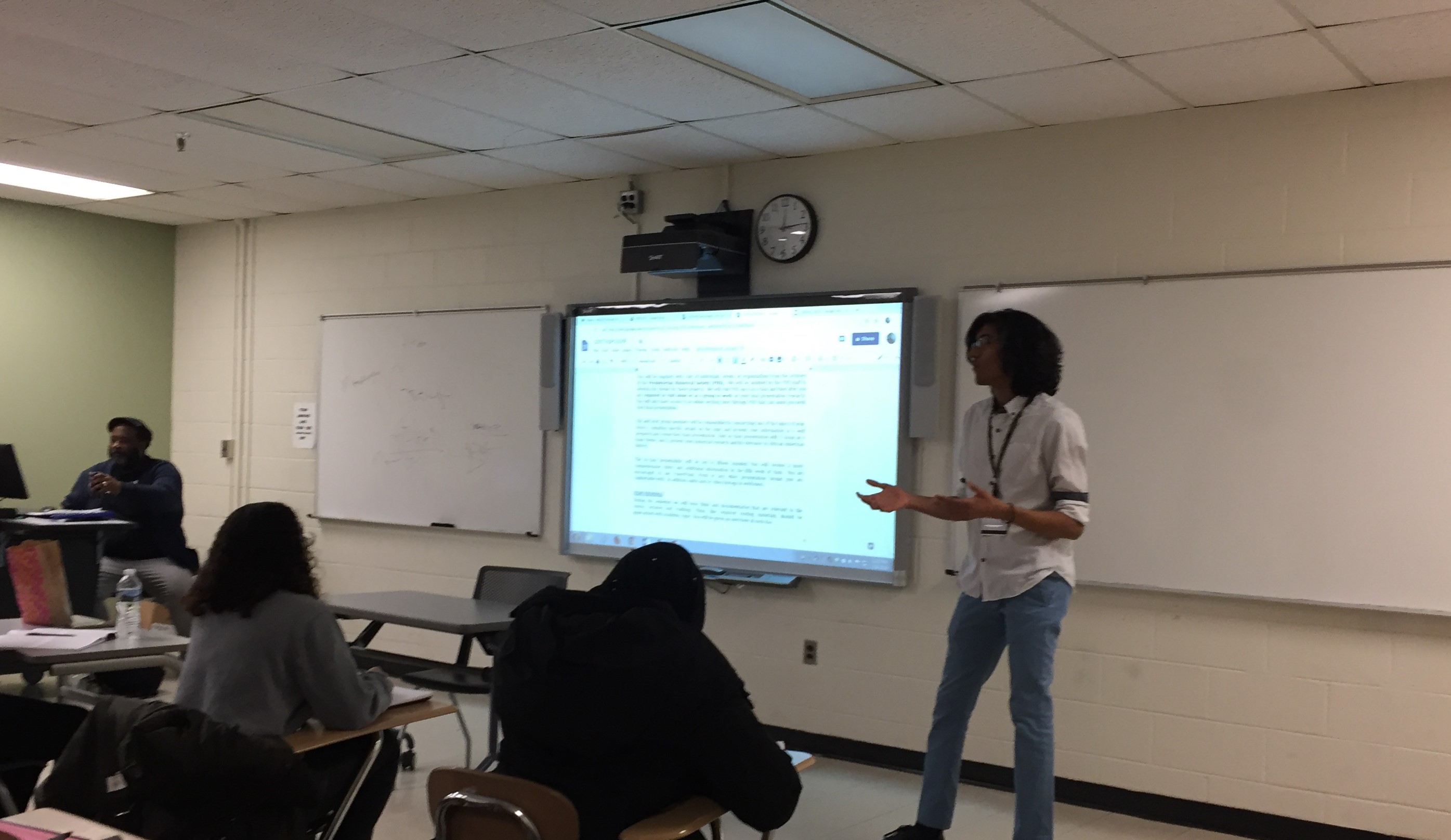--by Jamail Khan, BKBB Writing Tutor
When I became a part of the BKBB project, I was in my second year at the Community College of Philadelphia (CCP). I graduated from CCP in 2019. Having completed the Honors Humanities program—the program in which Professors Osvil Acosta-Morales, Brian Seymour, and Joel Tannenbaum teach—as well as having studied in regular college classes, I came into this project with a saturated panoramic view of the academic scene at CCP. Besides being a student, I had also been tutoring college students at CCP before I was offered the opportunity to work with PHS. Coming in with a student’s as well as an educator’s perspective was key to my work in BKBB.
Perhaps the biggest institutional reality of CCP is the immense diversity of the student body. This reality, in my experience, is one of the college’s great strengths as well as weaknesses. As a tutor for multiple classes in this project, one of the great challenges for me was the extreme range of students’ academic and intellectual skills. Some students were capable of writing strong argumentative claims and others were eleventh grade high schoolers who had not yet learned about a thesis statement. I grappled with this challenge of diversity at the ground level. My work, as a result, covered fairly extensive academic ground: I taught students everything ranging from structure and organization in an essay to meaning-making and historical interpretation of primary sources; from the functions of parts of speech to citing sources used in research; from effective communication skills in the classroom to correcting diction.
One of the great challenges for me was the extreme range of students’ academic and intellectual skills.
Working with the professors and BKBB history resource writer, Hannah Carney, was a point of great intellectual growth for me as a tutor. Different classes in the project demanded a slightly different role from me. The papers in Professor Miles Grosbard’s architecture class focused heavily on information organization and accuracy of independent research carried out by students about city churches. Professor David Prejsnar’s religion course emphasized historical specificity, contextualization, and strong thesis construction in the writing. Professor Tannenbaum’s history course was heavy on critical interpretation and developing concrete historical arguments. My work with Hannah was multifarious in nature. We spent a good amount of time identifying and solving various intellectual and academic problems faced by the students doing research. Toward the end of the project, Hannah and I worked to edit and adapt a grading rubric for history papers to evaluate the work that students did in BKBB.

As the writing tutor, the part of the project that was most academically and morally valuable for me was the one-on-one relationships between the students and myself. In the personal tutoring time that the students would spend with me, they would reveal the side of their academic and emotional concerns that is difficult to express in the classroom or directly to a professor. The tutoring space was often a space where students decompressed. They felt at ease while speaking about their concerns in the simplest and most direct ways. Oftentimes, it felt like I was giving many of the students the kind of individual academic attention that they had long been starved of. The BKBB collaboration between PHS and CCP made this one-on-one relationship between students and myself possible.
The tutoring space was often a space where students decompressed.
It is also worth saying something comparative about the two different modalities of communication I used in my role as a tutor: online and in-person. Once I graduated from CCP, I shifted to online tutoring. The experience of online tutoring was indubitably different from in-person tutoring, though both modalities had their own advantages. The major takeaway I would like to mention is this: while tutoring online, I lost some of the emotional connection that in-person meetings allowed. However, in the online format, providing written feedback on documents and emails afforded students the ability to refer back to my feedback multiple times throughout the revision process and hence made the revision process more thorough. Written feedback has a concrete syntactic and semantic clarity that spoken feedback does not. This is an insight I have developed after looking back at the complete arc of the project. Going forward, I would propose using both these methods of tutoring in all classes and also stress the importance of either kind of feedback to the full classrooms at the start of the project.
I have found that there is a balance to be struck between the moral and the academic aspects of tutoring. And a successful writing tutor is one that can strike that balance accurately.
